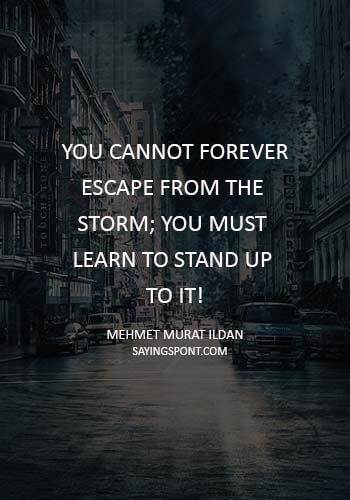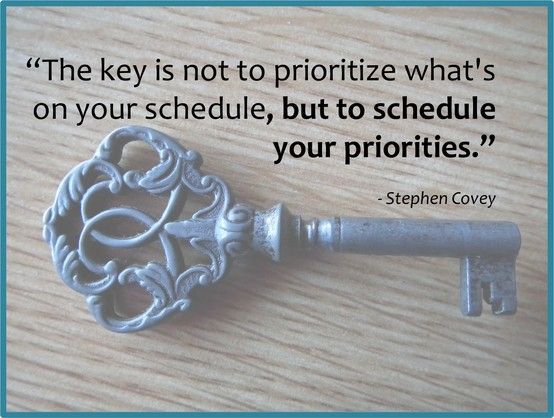
Our priorities define our lives and how we spend our time. It’s not enough to have an intellectual understanding of your priorities. Translating those into everyday living is critical. When you choose priorities that are aligned with who you are and who you want to become, it’ll be easier to plan your day in ways that align with your true self. Keeping these five things in mind will help you do that. (Estimated reading time: 5 minutes )
“Always remember, your focus determines your reality.”
— George Lucas
When I first began writing this post, I had a completely different narrative in mind. After witnessing the coronavirus pandemic that has spread across the globe, causing chaos and fear in every country, I decided to rewrite it. I changed my focus so that I could come up with content that my readers are most in need of during these trying times.
Just like you, my routine has been severely disrupted. And just like you, I am trying to stay informed without being overwhelmed by the hysteria that’s prevalent in the airwaves. It is a time of uncertainty and instability, and we’re all understandably concerned about what’s going to happen next and how it will impact us.
The truth is, we don’t know how things will pan out. All we can do is be aware of the medical recommendations and protocols advised, and stay tuned into the news for healthy doses of information.
It’s during times like these that people are coming to grips with what really matters. We’ve gone into ’survival’ mode, and it’s forced many of us to distinguish our wants from our needs.
Restocking our groceries and pantries is now more important than getting our nails done. Taking care of loved ones who are more vulnerable to the disease takes precedence over watching our favorite TV shows.

Now, more than ever, we have to learn the art of prioritization. Based on how the epidemic evolves in our country and around the world, things will shift quickly and choose different priorities on which to spend our time and energy on. Even though we can’t control what’s happening around us, we can control what’s going on within and adjust our focus.
Holocaust survivor and psychiatrist Victor Frankl said that the search for meaning is a primary source of motivation for humans. The meaning of life can seem like an abstract concept without a clear direction for us to pursue. Frankl followed his statements by saying: “What matters is not the meaning in life in general, but rather the specific meaning of a person’s life at a given moment.”
In other words, it’s through simple, everyday actions that we can find meaning. Our priorities define our lives and how we spend our time, whether it be at home, work, in our relationships, our community, or even when we’re alone.
These unusual circumstances offer the perfect opportunity for us to work on projects we may have been putting off for a while. The restriction currently placed on us removes the time constraints and drains on our energy that we usually experience, and instead allows us to hone in on doing fewer things well, and with a singular focus.

Author Annie Dillard writes in her book, “The Writing Life”:
“How we spend our days is, of course, how we spend our lives. What we do with this hour, and that one, is what we are doing. A schedule defends from chaos and whim. It is a net for catching days. It is a scaffolding on which a worker can stand and labor with both hands at sections of time. A schedule is a mock-up of reason and order—willed, faked, and so brought into being; it is a peace and a haven set into the wreck of time; it is a lifeboat on which you find yourself, decades later, still living.”
It’s not enough to have an intellectual understanding of your priorities. Translating those into everyday living is critical. When you choose priorities that are aligned with who you are and who you want to become, it will be easier to plan your day in ways that are congruent to things that hold importance and value to you.
Here are five things to keep in mind when setting your priorities:
1. Future goals: It’s challenging to set priorities when you have no clue what you would like to accomplish. If you’re uncomfortable with doing five-year plans, you can set monthly, yearly, or six-month goals, so long as they give you an idea of where you are heading. Based on the goals you set, you’ll be able to flesh out the steps you need to get there.
2. Urgency: Urgent tasks are those that have looming deadlines. If you fail to focus on these tasks, you could experience missed opportunities that are critical to your progress and growth. For instance, if you have to choose between completing a college application that needs to be submitted by next week or buying an outfit for a networking event the week after, you would prioritize the college application because it’s a closer deadline.
3. Resources: Every step that we take requires a certain number of resources, whether it be money, our focus, or energy. Goals that need more financial resources, like buying a home, can be prioritized if you have the finances available. If one of your wellness priorities is to become a better marathon runner, but you have a lot happening at work, you may want to push back your training for when you have more energy.
4. Emotional value: There are certain moments when time and resources do not matter because of the emotional significance of a priority. This is the case when it comes to taking care of a family member, a child, or pet. Perhaps you feel lonely and isolated and need to prioritize making friends at events or dating so that you can have your emotional needs met.
5. Opportunity cost: Opportunity cost is defined as the benefits a person misses out on when they choose one alternative over another. When you decide to spend more time on your career, you miss out socializing with friends or spending time with your family. When you choose to stay single, you miss out on the chance to experience a fulfilling and loving relationship. In such situations, no choice is right or wrong, even if society would have us think otherwise.
The important thing is that every time we choose to prioritize a certain goal, we should be aware of what we’re giving up and be at peace with that sacrifice.
Nelson Mandela once said that our choices should reflect on our hopes and not our fears. When setting your priorities, check-in with yourself to see whether or nor your decision is coming from a place of love. When it does, you can be sure that you are moving toward a place of fulfillment, joy, and abundance.
All my best on your journey,
Seline

Question for you: Which of these five factors do you consider when setting priorities? Why are they important to you?
Did you like this post? Sign up below, and I’ll send you more awesome posts like this every week.

Thank you for sharing this with us. I found the idea of what you called opportunity cost to be very interesting. I had never thought of things in that sense and it is an interesting concept. Thanks for passing this along to us- it has given me something to really think about and see how it might apply and reflect in my own life.
Sasha, I agree. There are always so many great gems to uncover in these blogs. I don’t comment often but I read many of these blogs and there’s always something great to uncover and take for myself. The emotional value and also what I call the emotional cost are big factors for me- it needs to be emotionally beneficial to me and it needs to not cause emotional harm for me or someone I care about either. I’ve passed many ‘great opportunities’ because I know the emotional value and the emotional cost are not worth it. Many people think I’m missing out but for me, it is what is best and is what I need to do.